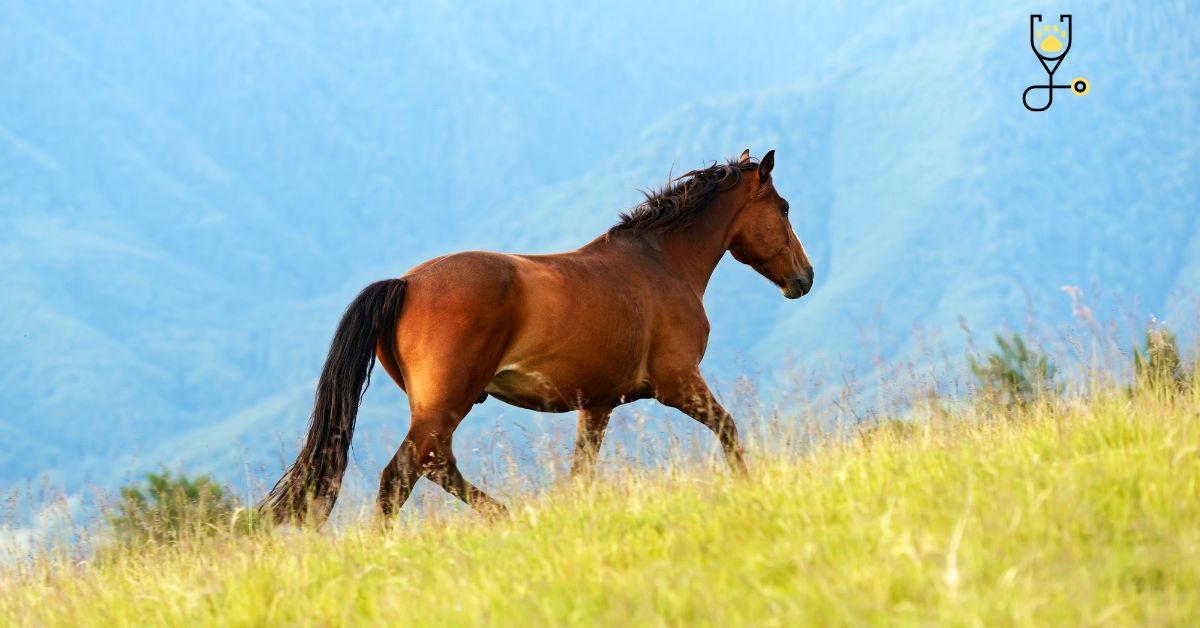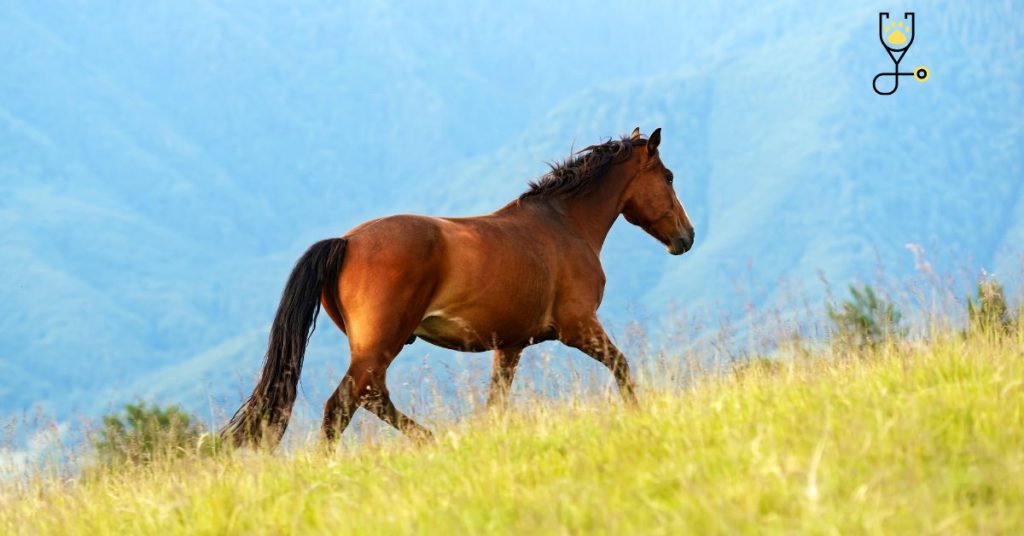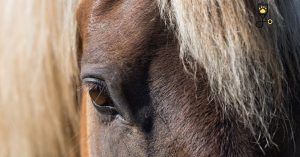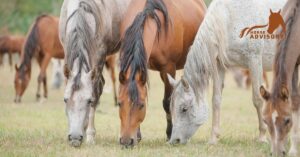If you have a horse, it’s important to be aware of cryptorchidism, a condition that can affect both colts and stallions. Cryptorchidism occurs when one or both testicles don’t descend into the scrotum, and it can lead to serious health problems if left untreated. In this blog post, we’ll discuss the symptoms, causes, treatment, and prevention of cryptorchidism in horses. By understanding this condition and taking steps to prevent it, you can help keep your horse healthy and happy for years to come. Thanks for reading!
What Is Cryptorchidism?
Cryptorchidism is a condition in which one or both of a horse’s testicles fail to descend into the scrotum. The testicles are normally located in the scrotum, which is a sac of skin that hangs down from the body just behind the penis. In horses with cryptorchidism, one or both testicles remain in the abdomen, near the kidneys. This condition is also known as undescended testicles or retained testicles.
Cryptorchidism can occur in any breed of horse, but it’s more common in certain breeds, such as Quarter Horses, Paints, and Appaloosas. It’s also more common in colts than in stallions.
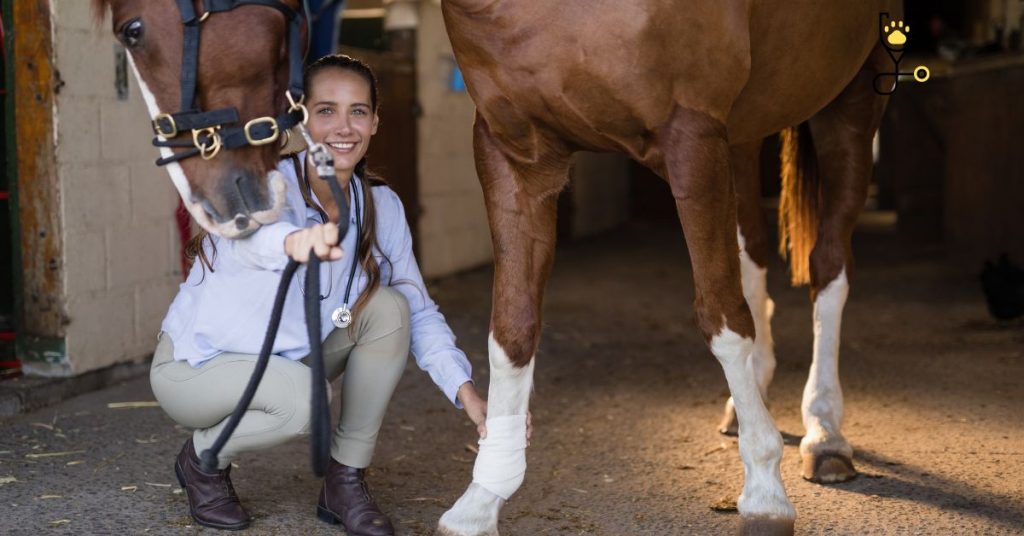
Types of Cryptorchidism
There are two types of cryptorchidism:
1. Unilateral: Unilateral cryptorchidism occurs when only one testicle is undescended.
2. Bilateral: bilateral cryptorchidism occurs when both testicles are undescended. In either case, the testicle(s) may be located in the abdomen, inguinal canal, or scrotum. bilateral.
What Are the Symptoms of Cryptorchidism?
1. Difficult urinating
Dribbling urine or straining to urinate can be a sign that one of the horse’s testicles is retained. This is because the testicle can block the urethra, the tube through which urine exits the body.
2. Swelling in the scrotum or sheath
If a testicle is retained, you may notice swelling in the scrotum or sheath (the sac of skin that surrounds the penis). This is due to the accumulation of fluid in the area.
3. Infertility
One of the most serious complications of cryptorchidism is infertility. stallions with undescended testicles often have low sperm counts and are unable to impregnate mares.
4. Abnormal behavior
Horses with cryptorchidism may exhibit abnormal behavior, such as aggression or mounting other horses. This is due to the high levels of testosterone that are produced by the retained testicle.
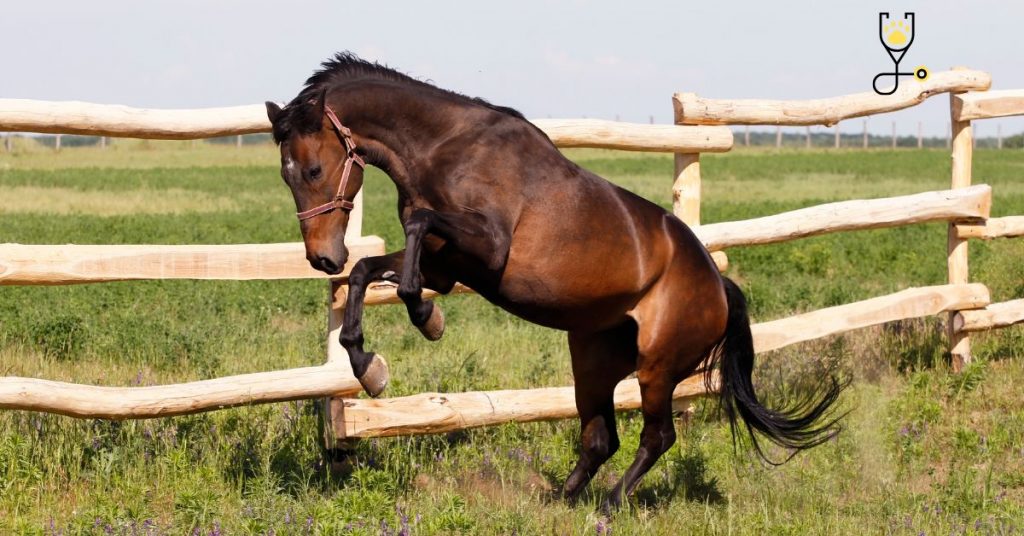
5. Weight loss
Retained testicles can produce hormones that interfere with the horse’s appetite, leading to weight loss.
6. Lameness
Horses with cryptorchidism may be lame due to the inflammation and pain that can occur in the affected area.
7. Testicular tumors
One of the most serious complications of cryptorchidism is the development of testicular tumors. These tumors are usually cancerous and can spread to other parts of the body if left untreated.
What Causes Cryptorchidism?
The exact cause of cryptorchidism is unknown, but it’s believed to be a combination of genetic and environmental factors. Studies have shown that there is a higher incidence of cryptorchidism in certain breeds of horses, suggesting that there is a genetic component to the condition. It’s also thought that the intrauterine position may play a role in the development of cryptorchidism. This means that the position of the fetus in the womb can influence whether or not the testicles descend properly.
What Are the Treatment Options for Cryptorchidism?
If your horse has cryptorchidism, it’s important to seek treatment right away. If left untreated, this condition can lead to serious health problems, such as infertility, weight loss, and cancer. There are two main treatment options for cryptorchidism: medical and surgical.
1. Medical therapy
Medical therapy involves the use of hormones to try to induce the descent of the undescended testicle. This treatment is typically only successful in colts and is less effective in older horses. It’s also important to note that this treatment can have side effects, such as aggression, weight gain, and digestive problems.
2. Surgical therapy
Surgical therapy is the only way to guarantee the descent of the undescended testicle. The surgery is typically performed under general anesthesia and involves making an incision in the abdomen to locate the testicle. Once located, the testicle is brought down into the scrotum and secured in place. This surgery is usually successful in achieving descent of the testicle, but it’s important to note that there is a risk of complications, such as infection or damage to the surrounding structures.
Preventions of Cryptorchidism
– Early castration of colts
– Selection of breeding stock
– Maintaining good nutrition and health care
– Avoiding inbreeding
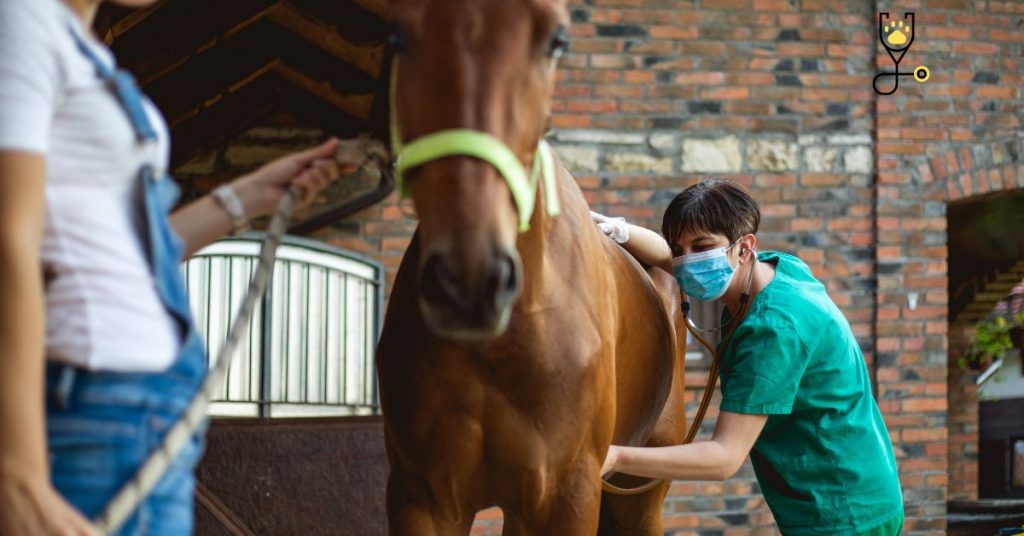
How to Manage a Horse with Cryptorchidism
If your horse has cryptorchidism, it’s important to take steps to manage the condition. This includes:
1. Monitoring the horse’s weight
Horses with cryptorchidism often have difficulty maintaining their weight. It’s important to monitor your horse’s weight and make sure that he is getting enough food and water.
2. Checking for signs of pain or discomfort
Horses with cryptorchidism may experience pain or discomfort in the affected area. It’s important to check for signs of pain or discomfort and provide your horse with pain relief if necessary.
3. Keeping the horse clean and dry
It’s important to keep the area around the horse’s genitals clean and dry. This will help to prevent infection and irritation.
4. Providing regular veterinary care
It’s important to provide your horse with regular veterinary care. Your vet will be able to monitor the condition and make sure that it’s being properly managed.
Conclusion
Cryptorchidism is a condition that can cause serious health problems in horses. If you think your horse may have cryptorchidism, it’s important to seek treatment right away. There are two main treatment options for cryptorchidism: medical and surgical. Surgical therapy is the only way to guarantee the descent of the undescended testicle.
Frequently Asked Questions
1. What is cryptorchidism?
Cryptorchidism is a condition in which one or both of the testicles fail to descend into the scrotum. This can be a congenital condition (present at birth) or acquired later in life.
2. What are the symptoms of cryptorchidism?
The main symptom of cryptorchidism is the absence of one or both testicles in the scrotum. Other symptoms may include pain or discomfort in the affected area, weight loss, and difficulty urinating.
3. What are the treatment options for cryptorchidism?
The two main treatment options for cryptorchidism are medical and surgical therapy. Medical therapy involves the use of hormones to try to induce the descent of the undescended testicle. Surgical therapy is the only way to guarantee the descent of the testicle.
4. How can I prevent my horse from getting cryptorchidism?
There are several things you can do to help prevent your horse from getting cryptorchidism. These include early castration of colts, selection of breeding stock, and avoiding inbreeding.
5. What should I do if my horse has cryptorchidism?
If your horse has cryptorchidism, it’s important to take steps to manage the condition. This includes monitoring the horse’s weight, checking for signs of pain or discomfort, keeping the area around the horse’s genitals clean and dry, and providing regular veterinary care.
